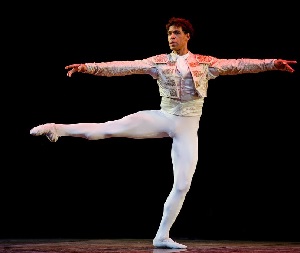 The Birmingham Royal Ballet is leaping into a new era. On Tuesday, the company announced that Carlos Acosta, the Cuban-born star who is generally considered one of the greatest male dancers of his generation, will be its next director. He succeeds David Bintley, who has led the company for 24 years, and who will step down at the end of this season, in July.
The Birmingham Royal Ballet is leaping into a new era. On Tuesday, the company announced that Carlos Acosta, the Cuban-born star who is generally considered one of the greatest male dancers of his generation, will be its next director. He succeeds David Bintley, who has led the company for 24 years, and who will step down at the end of this season, in July.
“It’s a big challenge, but I like challenges,” Mr. Acosta, 45, said in a telephone interview. “I think I can bring innovation to the company, bring it in tune with our time. I want to send a message that Birmingham has a world-class classical ballet company.”
His hiring is a coup for the company — and for Birmingham, which already boasts a bold-face name in the conductor Mirga Grazinyte-Tyla of the City of Birmingham Symphony Orchestra, and several important visual arts centers, including the Ikon Gallery and the Barber Institute of Fine Arts.
The appointment isn’t a huge surprise. Mr. Acosta has always been a charismatic, dynamic figure, staging his own seasons in Britain and abroad, choreographing and writing a memoir and a well-reviewed novel, even while he was a principal guest artist from 2003 to 2016 at the Royal Ballet in London, the sister company of the Birmingham troupe. Shortly before his retirement from the Royal Ballet, he founded the company Acosta Danza in Cuba and he has more recently opened a dance academy in Havana.
Alistair Spalding, the director of Sadler’s Wells, where Acosta Danza is an associate company, said in a telephone interview that everyone knows what a wonderful dancer Mr. Acosta is. “But I also know,” Mr. Spalding said, “how good he is at the other side of things: thinking of exciting ways of working with and presenting dance, creative in his thinking and a great teacher.” Mr. Spalding added that he believed Mr. Acosta’s personal background made him sensitive to the need to draw dancers and audiences from all walks of life.
Mr. Acosta started dancing because his father wanted him off the streets and out of trouble. The youngest of 11 children living in a poor part of Havana, he was accepted at the National Ballet School of Cuba, and won the prestigious Prix de Lausanne at 16, going on to dance with the Houston Ballet and then the Royal Ballet, where he became one of the company’s biggest draws and a major star.
(Source: The New York Time)